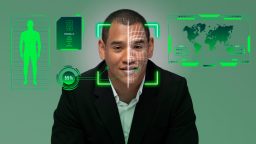As artificial intelligence (AI) continues to evolve, it’s transforming many aspects of our daily lives, from the apps we use to how businesses interact with consumers. However, with all the benefits AI brings, there are growing concerns about how it affects privacy. AI systems often rely on vast amounts of data to function effectively, and this data may include sensitive information about individuals. Understanding the balance between the capabilities of AI and the protection of privacy is essential in today’s digital age.
How AI Uses Data
Artificial intelligence systems are designed to analyse and learn from large datasets to make predictions, automate tasks, or offer personalised recommendations. For example, AI can help improve customer service by powering chatbots that respond to inquiries, or it can assist with fraud detection by recognising patterns in transaction data.
However, the effectiveness of these systems relies heavily on data. The more data AI has access to, the better it can perform. This often means that personal data, including information about your online activity, preferences, and even more sensitive details, can be used to train and optimise AI algorithms.
This is where privacy concerns arise. The more data AI systems process, the higher the risk that sensitive personal information could be exposed, misused, or even sold to third parties. Whether it’s through social media platforms, smart devices, or online shopping habits, AI systems are increasingly learning about individuals in ways that might not be entirely transparent.
The Potential Privacy Risks of AI
There are several key privacy risks associated with AI that everyone should be aware of:
- Data Collection and Surveillance: AI systems often require access to large volumes of data to function effectively. This could include everything from your location, browsing habits, and communication patterns to more personal details, like health data or financial transactions. With constant monitoring through smart devices, voice assistants, and apps, there’s a risk that this data could be used to build detailed profiles of individuals without their knowledge or consent.
- Data Breaches: Like any system that stores large amounts of personal data, AI-driven platforms are at risk of cyberattacks. If sensitive data is exposed or stolen during a breach, individuals could be vulnerable to identity theft or financial fraud. The use of AI in sectors like banking or healthcare makes this risk particularly concerning.
- Algorithmic Bias: AI systems are only as good as the data they are trained on. If biased data is used to train an AI system, it could lead to discrimination against certain groups or individuals. For instance, AI used in hiring or law enforcement may perpetuate biases based on race, gender, or socioeconomic status, which can compromise privacy and fairness.
- Lack of Transparency: Many AI systems operate as „black boxes,” meaning that the decision-making process isn’t easily understood by humans. This can lead to a lack of transparency regarding how personal data is being used and whether it is being protected adequately. Individuals might not fully know what data is being collected about them or how it’s being used.
AI and Your Right to Privacy
In response to these concerns, governments and organisations around the world are beginning to address the privacy implications of AI. Several countries have introduced regulations that seek to protect consumers’ personal data, such as the European Union’s General Data Protection Regulation (GDPR). The GDPR, for example, gives individuals the right to know what data is being collected about them, the right to access that data, and the right to have it deleted if necessary.
Furthermore, AI developers and companies are increasingly recognising the importance of privacy and transparency. Many now offer users the ability to control what data they share and how it is used, such as opting in or out of data collection or even using anonymisation techniques to reduce the risks of data exposure.
However, the question of privacy remains a complex one. As AI becomes more advanced and pervasive, it will be crucial for individuals, businesses, and governments to continue working together to establish guidelines and safeguards that protect personal privacy while allowing the benefits of AI to flourish.
How to Protect Your Privacy in an AI-Driven World
There are steps you can take to safeguard your privacy in a world that increasingly relies on AI:
- Be Mindful of What You Share Online: Think carefully about the information you share on social media, websites, and apps. The more data you provide, the more AI systems have to work with. Review your privacy settings on platforms like Facebook, Google, and Instagram to limit what others can access about you.
- Use Privacy Tools: There are a variety of tools designed to help protect your privacy. Virtual Private Networks (VPNs) can help shield your online activity from prying eyes, and secure search engines, like DuckDuckGo, don’t track your search history. You can also consider using encrypted messaging apps, like Signal, to protect your communications.
- Stay Informed About AI and Privacy Laws: Laws surrounding AI and data privacy are constantly evolving. Stay informed about your rights under laws like GDPR and other data protection regulations that may be in place in your country.
- Be Cautious About Smart Devices: While smart devices like voice assistants and wearable fitness trackers offer convenience, they also collect vast amounts of personal data. Make sure you’re aware of what information these devices are gathering and adjust your settings to limit data collection where possible.
The Future of AI and Privacy
As AI technology continues to advance, the tension between innovation and privacy protection will likely intensify. With the integration of AI in almost every aspect of life, finding a balance between harnessing its benefits and protecting individual privacy will be one of the greatest challenges of the digital age.
The future of AI and privacy will depend on the collaborative efforts of governments, businesses, and consumers to establish ethical guidelines, develop transparent AI systems, and protect personal data from misuse. By staying informed and vigilant, we can navigate the exciting but complex future of AI without compromising our fundamental right to privacy.





